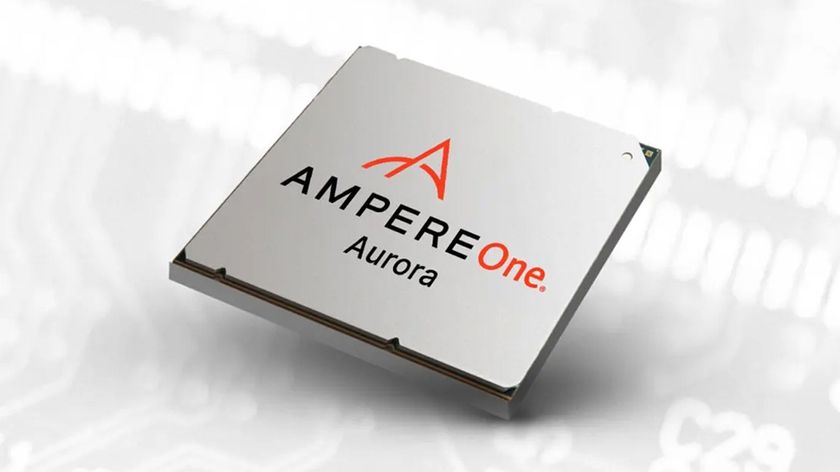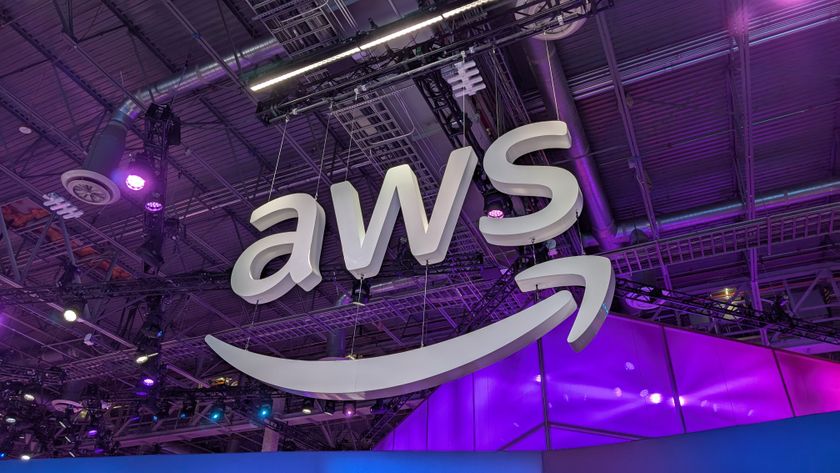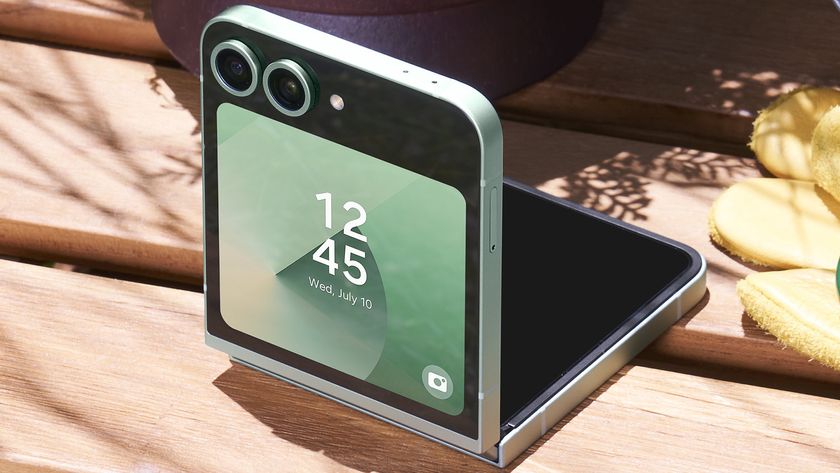Laptop tracking software: 8 apps to track your lost or stolen PC
Find and retrieve your lost or stolen laptop
5. Prey
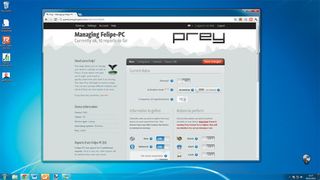
An open-source protector of your PC that puts paid-for software to shame
Price: Free
Info: http://preyproject.com
Specs: Wi-Fi auto connect, GPS and Wi-Fi geolocation, small memory footprint, webcam and screenshot capture, remote data removal, lockdown PC
As FrontDoorSoftware has shown already; just because a product is free doesn't mean features necessarily have to be cut. Prey is a feature-rich and stable open-source program.
As we've seen in some fantastic Linux distros, there are a lot of very talented coders out there. First impressions of Prey are that it has a professional and good-looking interface that manages to easily eclipse FrontDoorSoftware.
When launching the software for the first time, you're required to set up how Prey sends you reports - either via email and web, or email only. The web control panel is excellent, with a clear and attractive interface. Settings can be easily configured via sliding toggles, similar to those found on iOS devices.
Designating your laptop as 'Lost' will instruct Prey to begin creating reports on its location and send you email notifications. The frequency of these reports and emails can be easily altered and makes the absence of this feature in GadgetTrak all the more baffling.
What GadgetTrak does have over Prey, however, is that the reports are included in the email while Prey only offers a website link. The reports themselves are very good though, with Wi-Fi-based location (again pretty accurate), and webcam support.
Get daily insight, inspiration and deals in your inbox
Sign up for breaking news, reviews, opinion, top tech deals, and more.
A very handy feature that isn't in many other laptop security suites is that Prey also takes a screenshot of the laptop. It's a great addition, and if you're lucky the thief could be on a site that will help you recognise them, such as Facebook. There's even more information included in the reports, which makes Prey easily one of the best laptop security applications we've tested and it's free.
Verdict: 4.5/5
6. MyLaptopGPS
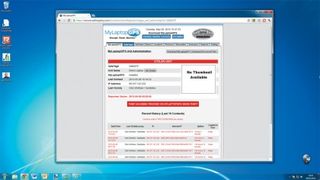
An oddly named product that tracks your laptop through IP and not GPS
Price: £1,200
Info: http://mylaptopgps.com
Specs: Location tracking, recover laptop data, remote destroy data
Once you've set up a MyLaptopGPS account and installed the software, it will run silently, so thieves will have no idea that your laptop is being tracked. As with the other products we've reviewed here, you can track your laptop via an internet browser.
The interface is rather bland and lacks the friendly style of Prey, but it's easy to navigate. You can quickly designate the laptop as stolen, which turns on tracking and a few unique features. You'll receive email updates about your laptop, with a reassurance that 'SafeRecovery Team is pursuing the recovery of this machine'. Also a window will pop up on the laptop claiming 'This machine is globally tracked via permanently embedded GPS'.
While this message lapses into hyperbole, it could encourage thieves to abandon or even hand the laptop in. There's even a phone number to contact, but it's a US number. The window sits on top of other windows, which could also prove annoying for thieves - except it can be easily closed through the task manager. Once closed, any thief would know it was being tracked and wipe the laptop and reinstall the OS.
MyLaptopGPS offers a workaround of sorts. You can identify important files you don't want to lose and when you flag your laptop as stolen, MyLaptopGPS uploads those files to a location on the web, emails you a link, and then deletes them from the laptop.
Though MyLaptopGPS has GPS in the name, it relies on the much less accurate IP address registration to locate laptops. Where other services use Wi-Fi positioning to get a more accurate location, the IP address registrant just gave us the city of the IP address - which wasn't even the city the laptop was in.
Verdict: 2.5/5
7. The LaptopLock
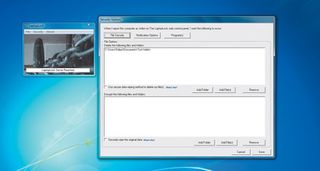
A free package offering a solid basis for your own security solution
Price: Free
Info: www.thelaptoplock.com
Specs: Delete files, encrypt files, show a message to the user, execute a program, play a sound, visible or hidden from the user
LaptopLock is a free offering that eschews a fancy interface for a simple, no-frills look. Signing up for the service is quick, you simply need to enter your email address and a password, and you're taken straight to the online control panel. From here you can add a computer, giving it a name for easy reference.
From this page you can download the software. During installation you can choose whether or not to show a splash screen when the laptop starts up - it's nice that you're given the choice.
There are no tracking features with this program, so ideally it should be installed alongside a free service that does, such as Prey. What LaptopLock concentrates on is protecting your data if your laptop is lost or stolen; and is broken into three parts.
The first is file security - here you can select the data you want LaptopLock to delete if you flag up your laptop as stolen via the web interface. Choosing the files and folders is very easy, and you can select to securely delete the data, so that data recovery tools can't access it. If you're not too keen on the scorched earth policy, you can choose to encrypt the files instead.
The second part is notifications. You can select to show a message or play a sound when the missing laptop is in use. The final part is that you can select a program to launch when the laptop is reported stolen - a good chance to run a tracking program, or activate your webcam and upload the photos it takes.
The laptop can also be marked as stolen, notifying a recovery team that will begin collecting evidence to hand over to the police. LaptopLock might appear simple, but with it you can make your own laptop security solution.
Verdict: 4/5
8. MyLaptopTracker
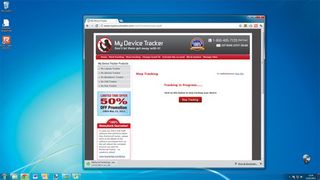
A stealthy way to track your laptop
Price: $30 (£19)
Info: www.mydevicetracker.com
Specs: Stealth mode, one click tracking, Wi-Fi positioning, webcam image capture and Flickr integration, remote data retrieval
MyLaptopTracker seems to take the opposite approach to protecting your laptop compared to packages such as FrontDoorSoftware. Not only is MyLaptopTracker's easy, it also takes a more stealthy approach to protection, but then it isn't a free package.
Installation is very easy, with just a simple download and install of the software. You're then taken to a web page with a big bright Start Tracking button. Once done you can leave it to track your laptop quietly. There's no sign that MyLaptopTracker has been installed on your laptop. Even the Uninstall Programs window shows no trace of the program.
In fact, the only way to get to MyLaptopTracker on the laptop you want to protect is by opening up the Run command window, typing 'mydevicetracker'. Once in the program you can select a number of neat features, such as a folder with important personal files that you can hide or, in extreme cases, delete if the laptop gets stolen. You can also trigger this action if the laptop can't connect to the internet after a set amount of days - though there are obvious drawbacks with this.
Two good features that were absent from GadgetTrak are the ability to alter the time between email notifications and upload images taken with the laptop's camera to a Flickr or ImageShack account. The interface for the desktop program is clear and easy to understand and took us very little time to setup, but the web interface is rather sparse.
There's no denying that the simplicity of turning tracking on and off via a single button is nice, but the sparse web interface can end up being rather annoying as you wait anxiously for a report.
Verdict: 3/5
And the winner is...
Hopefully by reading through this group test, and learning about all the many tracking features that are available, has piqued your interest in setting up some proper security measures for your prized devices. Besides, you don't want to miss out on posting screen shots of a thief online.
Sometimes in our group tests when we look at both free and paid-for software there can be a huge gulf in quality between the two. However sometimes we see free products that offer just as many features - and perform just as well - as their competitors that charge.
This is one of those tests where the free, open-source Prey easily competes - and in some cases surpasses - its paid-for rivals. When a free program does such a good job, it can often feel like a bit of an open and shut case - after all why pay for something when a free version will do the trick?
The results were not so clear cut, as LoJack still offers a compelling reason to lay down your money. In the end, there were two clear tracking software winners: LoJack representing the paid-for software and Prey winning the free software choice.
LoJack
LoJack's easy to navigate interface, along with the way that it splits the laptop security and recovery process into four steps, make it a quick and reassuring tool to use. While there are free services out there, the subscription you pay for LoJack brings some peace of mind that the service will still be there when you need it. Dedicated support and recovery are on hand to help you as well.
Prey
If you were to take a quick look at Prey, you wouldn't think it was a free tool at all. It just looks so professional. It boasts loads of feature, looks great and works extremely well. Once again the open source community has sown that talent and passion can turn an altruistic project into something truly special. With so many features, Prey is the best value laptop security package around. Get it and use it.

Matt is TechRadar's Managing Editor for Core Tech, looking after computing and mobile technology. Having written for a number of publications such as PC Plus, PC Format, T3 and Linux Format, there's no aspect of technology that Matt isn't passionate about, especially computing and PC gaming. He’s personally reviewed and used most of the laptops in our best laptops guide - and since joining TechRadar in 2014, he's reviewed over 250 laptops and computing accessories personally.




